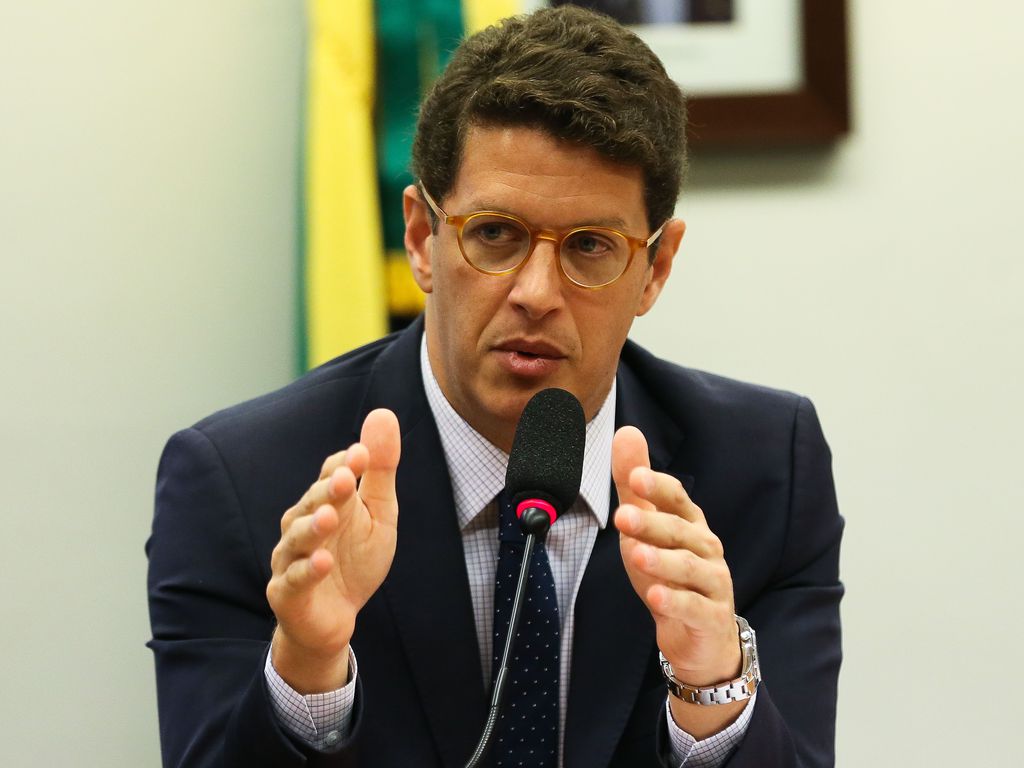RIO DE JANEIRO, BRAZIL – International Environment Day, celebrated on Friday, June 6th, was marked in Brazil by a legal offensive against the environmental policies of the Jair Bolsonaro government. The Brazilian Association of Members of the Prosecutor’s Office for the Environment (ABRAMPA), political parties and non-governmental organizations brought three lawsuits before the Federal Supreme Court (STF) and the Federal Justice, challenging positions and omissions by the Ministry of the Environment.

The portfolio is headed by Ricardo Salles, who a few days ago sparked outrage when he said at a cabinet meeting that the coronavirus pandemic was an “opportunity” for a mass-scale deregulation of environmental protection laws.
The legal offensive by the environmental groups was based on documents collected by the Climate Observatory, a network of 50 civil society organizations, and calls for the repeal of a rule that would, in practice, liberate the export of timber taken from Brazilian forests without inspection. On another front, they accuse the government of omission and demand the reinstatement of funds that help preserve the environment, like the Amazon Fund and the Climate Fund.
According to the organizations, the government has “served loggers” and stopped enforcing the law on timber exports, in addition to endangering the Amazon forest and the global climate by freezing the Amazon Fund and the National Climate Change Fund. “Civil society will do its part to ensure environmental protection. We hope that the judiciary will also do its part and prevent Salles from deregulating against the environment,” says Mauricio Guetta, legal advisor to the Socio-Environmental Institute.
“These lawsuits are a response to plans for environmental destruction the Minister disclosed at the cabinet meeting. We are taking the government to court to prevent such plans from coming to fruition. These are only the first lawsuits because the government is a factory producing harmful situations for the environment and illegalities,” said Marcio Astrini, executive secretary of the Climate Observatory, at a press conference.
Timber exports
The first of the lawsuits filed on Friday is a public class action (ACP) against the federal government and the Brazilian Institute of Environment and Renewable Natural Resources (IBAMA) and demands the repeal of an order issued by the institute’s president, Eduardo Bim, which provides for inspection of native wood only after exporting.
In other words, in practice, these could be traded regardless of inspection. According to the organizations, the document was signed 20 days after the Association of Timber Exporters of the State of Pará (AIMEX) called for an end to the inspections, on the grounds that they were “complicated” and “obsolete”. At the time, IBAMA’s technical area issued an opinion against the release. However, Bim ignored the document and the main author of the opinion was dismissed from office.
The second and third lawsuits have been brought by political parties, also against the federal government, seeking declaratory judgments of unconstitutionality by omission, and demanding the reinstatement of the Amazon and Climate funds. Salles disbanded the two Amazon Fund committees in 2019, claiming that the NGO’s contracts had “indications of irregularities” and that the decrease in deforestation – the Fund’s main goal a decade ago – was an “interpretative” result in the analyses submitted in reports.
His attempts to rebuild the committees controlling their membership were rejected by Norway and Germany, which are the main donors. In an attempt to reactivate donations from both European countries, Vice President Hamilton Mourão created a committee without Minister Salles.
According to the litigants, the Amazon Fund has had R$1.5 billion (US$300 million) frozen since January last year, a resource that could be used to fight deforestation. The rate of forest destruction has been increasing since May last year. “As a result, the federal government, which always uses the lack of funds to justify its inaction in environmental policy and actions aimed at the climate issue, is stopped from using these resources”, the group said in a statement.
Regarding the Climate Fund, established in 2009, there was also an available fund that was not committed, according to the organizations involved in the lawsuits. There was a budget authorization in 2019 for the investment of a non-refundable R$8.050 million in the promotion of studies, projects, and enterprises.
However, by the end of the year, just over R$718,000 had been committed. As for the refundable resources, managed by the BNDES (National Development Bank), over R$500 million were available, but only around R$348,000 were committed.
“It’s stagnant money that needed to be invested in fighting deforestation. We have a target of zero illegal deforestation by 2030,” Federal Deputy Rodrigo Agostinho (PSB-SP) said at a press conference.
On his Twitter, President Bolsonaro also recalled Environment Day, stating that Brazil is the country “that most preserves the environment in the world. Unfairly, the most attacked,” he wrote.
Source: El País

